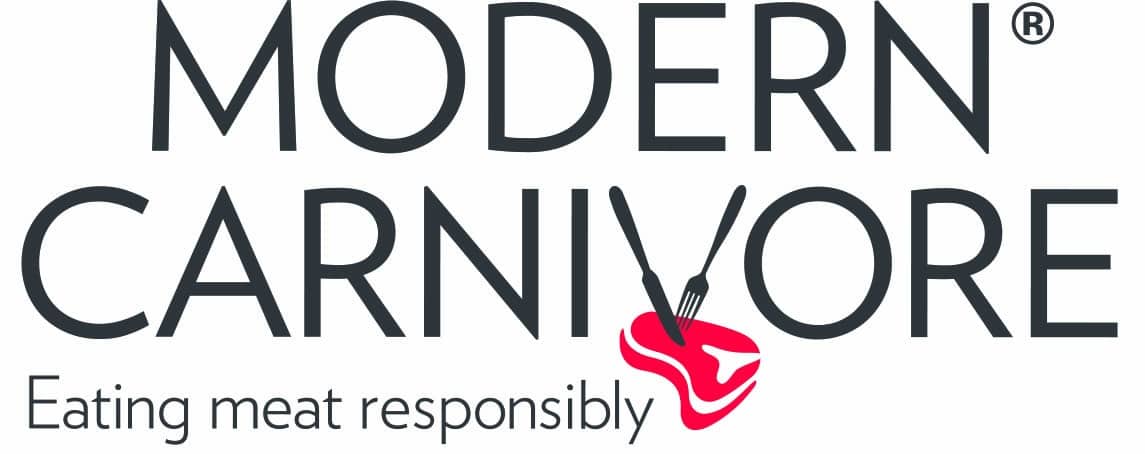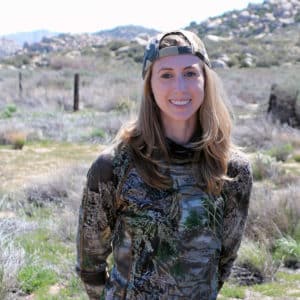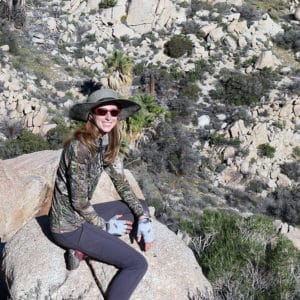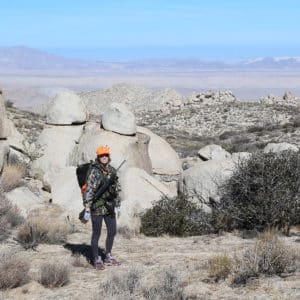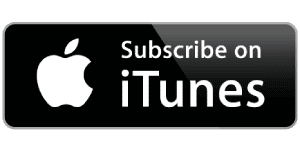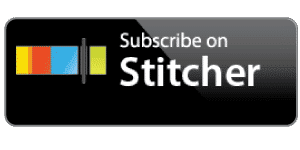Podcast: Play in new window | Download (Duration: 1:24:01 — 115.4MB) | Embed
Subscribe: Apple Podcasts | Spotify | RSS | More
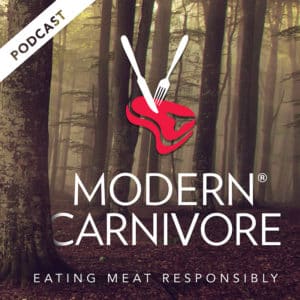 In this second episode of the Modern Carnivore podcast I sit down with Robyn Migliorini who is a vegan turned hunter. Robyn and her husband Nick were strict vegetarians, and then vegans, until their bodies started giving feedback indicating that they weren’t getting all the nutrients they needed in their diet. However, considering the idea of bringing meat back into their diet was difficult because they originally became vegetarians in part due to all the problems with “factory farming”. As a result they started exploring the idea of becoming hunters and responsibly sourcing meat themselves. Robyn’s story is very engaging and her perspectives and thoughtful considerations can be appreciated by all.
In this second episode of the Modern Carnivore podcast I sit down with Robyn Migliorini who is a vegan turned hunter. Robyn and her husband Nick were strict vegetarians, and then vegans, until their bodies started giving feedback indicating that they weren’t getting all the nutrients they needed in their diet. However, considering the idea of bringing meat back into their diet was difficult because they originally became vegetarians in part due to all the problems with “factory farming”. As a result they started exploring the idea of becoming hunters and responsibly sourcing meat themselves. Robyn’s story is very engaging and her perspectives and thoughtful considerations can be appreciated by all.
Robyn Migliorini
Reference Links from Today’s Podcast
Modern Hunters (Robyn’s website)
Books for People Considering Hunting (Including Tovar Cerulli’s The Mindful Carnivore)
Purchase The Omnivore’s Dilemma: A Natural History Of Four Meals by Michael Pollen (on Amazon)
What is the Remington .25-06 referenced by Robyn? (Wikipedia)
What is the .22 caliber mentioned in this podcast? (Wikipedia)
Why Listen to The Modern Carnivore Podcast?
With all the podcasts out there why would you want to listen to this one? Well, if you’re looking for a new adventure in the outdoors we’ve got some very interesting guests talking about topics related to honest food and wild adventures. Get ready to be entertained and enlightened on topics related to hunting, fishing, foraging…and more.
Here are just a couple of our upcoming podcasts:
Episode 3: Land Tawney who is the President of Backcountry Hunters & Anglers, and Ashley Peters who is a member of the organization in Minnesota join me for a conversation on conservation and public lands. We talk about why these two topics are so near and dear to the heart of hunters and anglers.
Episode 4: Cooking wild game well can be a daunting task for some, but not for Jamie Carlson and Jack Hennessy. These two experienced wild game cooks talk about everything from braising goose to grilling moose.
Do you have a question that you’d like answered on the podcast, or an idea for an episode? Shoot us a note at info@modcarn.com.
Subscribe to the Modern Carnivore Podast on iTunes and/or Stitcher.
Please support the podcast by giving us honest feedback on iTunes or wherever you listen to the podcast. And if you do like it, don’t forget to tell your friends about it!
All the tofu in the world wouldn't make this craving go away. Robyn - Vegan turned Hunter on Modern Carnivore Podcast. Share on XIf you enjoyed this podcast you may also like this video of why Modern Carnivore was created.
Here’s a transcript of today’s Episode – Vegan Turned Hunter
Intro: 00:00:19
Welcome to the Modern Carnivore podcast, a guide for those interested in hearing more about hunting, fishing, and other paths to eating more responsibility. Now, here’s your host, Mark Norquist.
Mark : 00:00:29
Hello and welcome to this second episode of the Modern Carnivore podcast. Before we jump into today’s topic, I just want to mention the website for Modern Carnivore, where we’ve just put some information up about events here in 2018 that are going to be held called the modern carnival or experienced. These half-day retreats are a way to really introduce people to the idea of hunting, fishing, and foraging as ways to get food on the table and people from different backgrounds and interests levels come to these events, but really have a great opportunity to ask questions and explore what this whole idea of getting outdoors and being responsible for your food source is all about. And so if that sounds interesting to you, go check out the events page at ModCarn.com/events. So today I am joined by Robyn Migliorini in today’s discussion and Robyn’s got a really interesting story to share. She grew up in Boston and very much in an urban environment with not much connection to the outdoors and didn’t really know anybody who hunted. She actually became a Vegetarian and ultimately a Vegan, but started having some questions about that and her desire to be connected to and responsible for the food that she eats really kindled an interest in actually exploring the idea of becoming a hunter. And so she’s got a great story to share. I think you’re gonna you’re gonna really like hearing it and uh, thanks for listening. ( Vegan Turned Hunter)
Mark: 00:02:30
OK, we are here in Stevens Point, Wisconsin with Robyn Migliorini. How do they do?
Robyn: 00:02:30
Very good. Perfect.
Mark: 00:02:40
OK, good. Um, and uh, Robyn just gave a presentation here at the University of Wisconsin – Stevens Point on her journey to becoming a hunter and I believe the title is “giving hunting shot”, correct?
Robyn: 00:02:40
Yes, that’s right.
Mark: 00:02:54
Excellent. So, um, great to. Great to see you again. We met a few years ago out at a BHA (www.backcountryhunters.org) Rendezvous.
Robyn: 00:03:01
Yea, it’s fun to be able to reconnect now here in Wisconsin.
Mark : 00:03:06
Absolutely. So I met you and your husband, Nick when you started the website, excuse me, modern hunters – very similar to Modern Carnivore. So I had to reach out to you guys and say, hey, that’s awesome. So, what I wanted to do in this podcast was really just learn a little bit more about your journey into the world of hunting and you shared that both yesterday and Madison and today here in Stevens Point, um, with a lot of people who were very interested to hear that story. And so I guess maybe giving even a little bit of more of a, of a, of a background or context. Um, why don’t you share with the audience and, and, and where did you grow up in a little bit of that, but, but tell me a little bit about your upbringing. (Vegan Turned Hunter)
Robyn: 00:03:55
Of course. So I grew up just outside of Boston, Massachusetts in the suburbs, actually not far outside the city and I had a pretty, I don’t know, stereotypical east coast, urbanite, suburbia upbringing. Um, you know, Boston was sort of the cultural hub in the center of it all. And we spent a lot of time doing things that you do when you live in the suburbs, like playing kickball and going to the playground and you know, maybe an outdoor activity would be going to the beach or going to a lake or something like that. Um, but it, the, the whole concept of really being out there in the wilderness and especially the whole concept of hunting was just really not present in the world that I grew up in. (Vegan Turned Hunter)
Mark : 00:04:43
Did any anybody in your family or anybody in your social network hunt at all?
Robyn: 00:04:48
No, not at all. I didn’t know a single hunter to my knowledge. I mean, it’s possible that maybe there was a hunter out there. It was secretly hunting and no one knew I had really. No hunting wasn’t on the radar at all. I didn’t have any exposure to it. It just wasn’t a part of the world. It wasn’t. I don’t think it’s something that probably even ever crossed my mind. (Vegan Turned Hunter)
Mark: 00:05:11
Right, right. So, so you, you grow up in this, in this relatively urban environment, east coast, um, and um, and you get into high school, you go off to college, sort of still that same environment. Very urban and w. where did you go to school?
Robyn: 00:05:29
I went to Wellesley College for my Undergrad. So that’s also in the Boston area, not too far outside also in the suburbs. Um, kind of kind of its own little cultural world. It’s a little bit, it’s a little bit further outside the city but still very much close to that metropolitan area. Um, small liberal arts school and yeah. (Vegan Turned Hunter)
Mark: 00:05:52
When you were younger did you, uh, you know, you talked about playing kickball, whatever. Did you ever camping? Did you go to camp and do outdoor activities at all?
Robyn: 00:06:01
I never went camping, never went to camp and my family did have a cottage up on a lake in New Hampshire that was, you know, my grandparents had that and so as kids we would go up there with my grandparents and my parents and me and my brother and my aunt and we would spend a lot of weekends up there. So I had some exposure to that, we would go boating and go swimming, but it was really all centered on our little cottage, like the tiny little waterfront spot that we had and just sort of a lake recreation, lots of people around. And it was very, very different I think than sort of a more wilderness lakes experience. (Vegan Turned Hunter)
Mark : 00:06:41
Well, yeah, I mean, you know, here in the Midwest, especially in Wisconsin, Minnesota, um, it’s, it’s very much cultural to have that cottage up north and um, and uh, but that would be an opportunity for people to get exposure to fishing most, most, most, uh, frequently. Um, but that wasn’t necessarily part of, of, of that experience in your cottage life.
Robyn: 00:07:04
I actually did have a little bit of exposure to fishing. Like my grandfather was a fisherman. He was pretty passionate about it maybe, especially when he was a little bit younger, but he’s still fished when, when we were up there and I had a fishing pole and I would sometimes fish, but it was always catch and release. So there was no conception, I think ever that that fish could really be your food. (Vegan Turned Hunter)
Mark: 00:07:04
Right So fly-fishing?
Robyn: 00:07:04
No.
Mark : 00:07:32
Just whatever…Surf Fishing and out on a boat, but just always catch and release.
Robyn: 00:07:37
Yeah. Bass. Mostly things like that. And so to me it never really got the appeal of it that much. I knew how to cast [inaudible] had been taught that and it was kind of fun to go out sometimes with my grandfather did around sunset and spend some time the boat and cast, but I didn’t really, I didn’t really connect with it because I think maybe I didn’t really see the point of it as much, like it was a leisurely activity, but it wasn’t something that really grabbed me. (Vegan Turned Hunter)
Mark : 00:08:03
OK. So you had a little bit of fishing when you’re a kid but always catch and release. So you never were filleting fish and um, so you get into college, you think you do start having some camping experiences, right? Or did or backpacking or what? Did you do something outdoor related?
Robyn: 00:08:24
Yeah, later in college, sort of the second half of college. Um, when I met nick, who’s now my husband and he introduced me to backpacking, and so at that time I had, I had also gone in a couple of camping trips with some friends, but you know, the typical car camping where you kind of, the point of going is just so that you can go hang out in the woods and spend some time with your friends. And so backpacking was a really different experience of that and much more intense, much more. You’re really out there and much more challenging. My first backpacking trip was that, I mentioned this in the talk tonight was like a total disaster. Yeah. So I was, I guess you’d say I was unprepared, um, ended up, you know, I’d never hide in my new brand new hiking boots, that horrible blisters. Um, actually it was a really hot day in California, actually ended up getting heat exhaustion on rankin. And so it was pretty miserable. (Vegan Turned Hunter)
Mark : 00:09:25
He obviously didn’t want to do it again.
Robyn: 00:09:27
I loved it. That day was a tough day, but in general the rest of the trip was a blast and I really liked being out there. It was a different experience of not having to be around a ton of other people, not being in a campground that felt like it was a manufactured thing and just being able to really be out there and for it to be really quiet and sort of have that peaceful time. (Vegan Turned Hunter)
Mark : 00:09:52
So at that point you’re getting exposed to wilderness. Where does, where does it go from there to what’s the next step in the journey to ultimately becoming a hunter?
Robyn: 00:10:02
Yeah, the biggest. I think the biggest piece of that transition was the food piece. So as I was gaining these outdoor experiences and at the same time I was starting to think a lot more about where my food came from. Um, what sort of food I wanted to eat. So I’d actually been vegetarian for a number of years already by the time, by this time. So by the time I had started backpacking, I was already vegetarian mostly for environmental reasons, actually had learned about the industrial food system. Um, all the negative environmental consequences that came along with it, local food, food ethics, all of that, you know, reading Michael Pollan’s, Omnivore’s Dilemma, reading fast food nation, reading those things and getting exposed to these ideas that were certainly less than pleasant. Um, and it was, the vegetarianism actually that ended up leading to hunting as strange as that can sound. (Vegan turned Hunter)
Mark : 00:10:58
Exactly. I’m sure on the surface, people were like what?…but it’s a great story. Do you, um, have you read Tovar Cerulli’s (book) The Mindful Carnivore?
Robyn: 00:11:07
Yes, we actually read that after we had started hunting for a little while and we kind of thought because later on I also started eating a Vegan diet because, you know, vegetarianism wasn’t restrictive enough, so why not want to do more? Um, and so w I think we kind of thought like, Oh man, going from Vegan to hunting, that must be such an unusual thing. And then Lo and behold, we find that book and we’re like, oh, well, someone’s already written this book. They’ve already done it. Like we’re behind the curve. (Vegan Turned Hunter)
Mark : 00:11:35
But there are others out there, like a similar journey.
Robyn: 00:11:39
That was a huge moment to realize, oh, we’re not alone. And this is not, this idea isn’t completely crazy. Like we’re, we haven’t lost our minds. Other people think the same way that we’re thinking about this.
Mark : 00:11:50
Right? Right. From urbanite to going outside a bit. At the same time you become vegetarian, ultimately turned vegan. Um, what was the inflection point? There must have been something, something that happened or a thought that came in and what was that?
Robyn: 00:12:12
Yeah, I think the real thing was some sort of message my body was trying to send me despite all the things that my brain wanted my body to be doing. So this diet that I had embarked on was a very intentional thing. I’ve thought that I was really doing the right thing and being sustainable. (Vegan Turned Hunter)
Mark : 00:12:31
What would it. What would your daily diet consist of when you, when you were at the, at the, at the height of, of being a Vegan? I don’t even know what exactly that would entail.
Robyn: 00:12:41
Let’s see. I would say breakfast was probably not that far off of what a lot of people eat for breakfast. Usually oatmeal with fruits and nuts and maybe soy milk or something like that. A lot of things that we eating, we certainly were eating a lot of, a decent amount at least of the sort of fake meat substitutes like soy chorizo, um, and like the sausages that are made of – I don’t know – not meat
Mark: 00:12:41
How did they taste?
Robyn: 00:13:08
When you haven’t had meat for a long time but actually start to taste pretty good, you forget (what it should taste like) so it’s totally doable. And we would also do a lot of things like, you know, um, marinate Tofu and then bake it and have that with rice and vegetables or um, have pasta dishes with, you know, some sort of vegetarian protein or lots of things. Lots of things with beans. Beans were a major future of the Diet I would say. (Vegan Turned Hunter)
Mark: 00:13:36
So there are some side effects from the.
Robyn: 00:13:36
Yeah, you could say that.
Mark: 00:13:44 So. I mean, like Tovar talks about in terms of just the health aspect, I think, uh, in his body telling him of just, you’re missing something. I mean, do you feel like that, was it, like you just felt there was, it was a void in a certain nutrient areas that, that your body was saying, I need something that I’m not getting.
Robyn: 00:14:02
Absolutely. And it was so weird because I would have these cravings, but not for anything in particular. You know, sometimes you’re like, Oh man, I’m really craving chocolate craving French fries or something. I had these cravings that had no ostensible target. I didn’t know what it is that I wanted and I had not eaten meat for so long. I didn’t even remember really what it tasted like, so I wasn’t craving the taste of a thing, but I just felt like I could eat all the tofu in the world or eat all the vegetables or eat all the peanut butter or whatever. And yet somehow this craving wouldn’t go away. And we’re talking like months of just feeling like I feel kind of hungry or something feels not right and I can’t figure out what it is. (Vegan Turned Hunter)
Mark : 00:14:45
So how long, how long from the time that you started? Uh, your journey of being a vegetarian? Um to this point, when your body starts telling you what, how long of a time frame was that? Are we talking months? Are we talking years? Are we talking….
Robyn: 00:15:03
Yea, we’re talking years, so probably let me think. It would’ve been at least probably three years until that started happening and it’s something that I tried to ignore for a really long time, so something that I acknowledged but sort of let continue to happen for quite awhile because it felt like I didn’t have a good answer for it actually continued to be vegetarian or Vegan for many years after that and just try to find, well maybe I need to increase the amount that I’m eating x food or maybe I need to stop eating all this weird fake meat and just like make it all from scratch. And so I tried a lot of things. (Vegan Turned Hunter)
Mark : 00:15:37
What’d you, what’d you take supplements to try to try to, you know, get what you’re not getting the food debt or were you not at that point of like, just thinking that it just was lacking (in your diet).
Robyn: 00:15:49
I was pretty convinced that I had a balance Diet. I seem to be eating all the right foods and the right amount so I wasn’t going crazy with any sort of supplements, but eventually got to this point where I was just like, OK, I think something needs to change and my body’s trying to tell me something and my body doesn’t really care whether or not this is like an environmentally friendly thing to do, but I think it would like to try to eat. (Vegan Turned Hunter)
Mark : 00:16:13
So your husband Nick is there with you, right? He’s also Vegan. So you’re doing this together. So do you approach them and say the I, I think I need to eat meat or like how did that, how did that transpire?
Robyn: 00:16:28
I actually think he might have been the one to bring it up or he, he would ask me like, do you feel this way? Are you feeling more tired? Are you feeling? And I think he was noticing it more from this sort of energy and fatigue perspective or being able to recover from exercise perspective. And I was feeling it more. I was like, I don’t know. I feel that as much but I have these cravings though. And so we both were having kind of an analogous experience, but we were noticing it in the manifestation I think was a little bit different for both of us when we started to be like, well I wonder if this is linked. I wonder if there’s something going on here. (Vegan Turned Hunter)
Mark : 00:17:04
Right, right. So you both talk about it. You’re like, I think we need meat in our diet.
Robyn: 00:17:04
Yea, Basically.
Mark: 00:17:14
OK, so you came to that crossroads and now you’ve got a choice of like how you’re gonna proceed then right?
Robyn: 00:17:19
Exactly. So it’s like, OK. It’s like, well we could go back to getting meat at the grocery store at that point. That was like so far from what we had been doing that felt it very abrupt to go ahead and do that. Especially because we were all of the reasons that we were vegetarian and Vegan for in the first place. You know, we didn’t really want to participate if we didn’t have to. We didn’t want to participate in a sort of large food system that had all sorts of problems with it and go the grocery store and meant going back to that to us. (Vegan Turned Hunter)
Mark : 00:17:51
Right, and so I mean, the original entry into, into being vegetarians and vegans was around a, a feeling of just moral responsibility with the food system. Is that it? You’re going to take responsibility and this is the most responsible way to become a vegetarian?…And ultimately Vegan? ( Vegan Turned Hunter )
Robyn: 00:18:10
Yea, it seemed in fact, kind of the easiest ways, at least from our perspective, the easiest way is to just have a more sustainable diet that we’d read all these books and that’s what they’d say like, well, if you want to find a way to improve your own diet, here’s what you gotta do, all you have to do is stop eating this, this. Um, so, I think we just decided initially that we wanted to try it as an experiment. I think part of me wanted to, if I wanted to know, could I do it? Like it was almost like a personal challenge I could. I handle being a vegetarian…?
Mark : 00:18:38
Right, right, right, exactly. I can imagine. I mean, I can’t imagine how big of a challenge that would be. Yeah. I mean, I, I couldn’t do it. Um, you know, I mean, it’d be real. That’s a, that’s a huge mountain to climb. I think any type of restrictive diet, I just think about the social impact of, of being out with people and, and having to think through, um, each one of the settings you’re going to be in and to say how am I going to feed myself and I have to be prepared and I have to bring my own food or, or make sure it’s the right kind of place. What have you.
Robyn: 00:19:12
I think in college I was actually a pretty easy place to start this because like where I went to school, we had a whole one whole dining hall that was like a vegetarian dining hall, so it was pretty easy when someone was making the food for you to just show up. And I was able to do that early on and then eventually you get so used to it that by the time that you’re out in the world making your own decisions, going to restaurant, it’s sort of, it’s become second nature. You don’t really remember not eating that way anymore. So I was surprised how easy it was actually. (Vegan Turned Hunter)
Mark : 00:19:42
Interesting. So, so you decide you’re going to start eating meat, um, you think about grocery store, um, you know, we can’t do that and then you’re like, OK, what are the other ways where I basically. So I mean, was there a moment though when you thought, I mean that’s a pretty big concept to, to be open to if you’ve never hunted and you didn’t have it in your background at all to consider that. Had you ever owned a gun?
Robyn: 00:20:11
Oh No, I’ve never, I don’t know that I’d really seen one in person maybe except for like on a police officer.
Speaker 2: 00:20:18
Right. So, I mean that’s a, that’s a daunting thought also, right? I mean just to think that that you’re, you’re like OK, I’m going to pick up a weapon and actually kill an animal so I can eat it.
Robyn: 00:20:18
Yea!
Mark: 00:20:31
That’s a big idea. So I mean do you go right into it or do you do bite around the edges of that idea? A little bit. Like did you see something where like, oh!….talk about that a little bit.
Robyn: 00:20:42
Well we did try to think about the, the maybe easier and more straightforward options. We could just get some meat from a local farmer or rancher. That sounds pretty good. They’re probably, you know, maybe doing things a little bit better than the giant agricultural industrial system. The problem with that though is that we felt like, well this is probably going to be better, but there was still this element of not knowing really. Like we couldn’t really know what was going on behind the scenes and I think Nick was experiencing this too, but I’ll talk about, at least from my perspective that there is this element of detachment that I think I was a little bit uncomfortable with that were part of me really wanted to know and maybe more intimately experienced what it would really mean to eat a creature that had once been living. So to experience that death and see exactly what that was like and to take responsibility for that in some way. I felt like I wanted to throw myself into that. That if I had to eat this way, I needed to know that I actually could do everything that it took to actually do that. ( Vegan turned Hunter )
Mark : 00:20:42
And so, you and Nick are talking about this…”well what if we started to hunt?” and your sorta both exploring that idea together right?
Robyn: 00:20:42
Yes.
Mark: 00:21:56
…which it’s great to have a companion to be able to talk that through.
Robyn: 00:21:56
Yea, so helpful.
Mark: 00:22:01
Did you, uh, did you, did you bring it up to a friend or anyone and say, you know, nick and I are thinking about hunting and have some reactions that, you know, we’re tough or, or like where people are, like, I don’t get what you’re thinking or anything like that?
Robyn: 00:22:18
I’m trying to think. I don’t know that we’ve talked about it so much with any friends early on. We were still so conflicted about the whole thing and I still, I still felt like I wasn’t sure if this was something I wanted to admit to my friends. Certainly my friends were in pretty similar position to me and that they all were sort of similarly grew up in urban environments and probably didn’t have any exposure to hunting. So I wasn’t sure how they were going to react. So when these really early phases when we were just sort of playing around with the idea, I think we really kept it to ourselves.
Mark : 00:22:50
Right? That doesn’t surprise me.
Robyn: 00:22:52
Yeah. And it wasn’t until we really decided like, OK, we’re going to start this. We’re gonna eventually we’re gonna, we’re gonna take the hunter education class. I think at that point we started to tell some people about what we were doing and they’re all actually pretty understanding. I didn’t have any friends that were like, oh yeah, me too. Um, but I also didn’t have anyone that seemed to, you know, be too freaked out or perturbed about the idea when I explained why we were doing it. Everyone understood that. It made sense. They’re just like, wow, that sounds like a lot to go through.
Mark : 00:23:28
That’s great to hear. That’s awesome. So, um is that where did you have the idea or know that like an orientation class of firearm safety class was, was one of the first steps or did you have to. Did you start searching around? You know what, how did that, how did that process go?
Robyn: 00:23:42
Yeah, I think nick had started looking into it and he, he said early on he was like, OK, so if we’re going to do this, we need to take this hunter education class. And his rationale was like, OK, you know whether or not we’re going to decide to hunt or not, we should just do this class first. Which was great. In retrospect. I’m so glad we did that. We took a hunter education years before we actually ended up going out into the field. There was a big gap between us doing that and us actually starting to hunt and I’m glad that we did that because it laid a little bit of a foundation enough that I started to learn about firearms, like gun started to become a little bit more demystified and that made me feel comfortable enough to actually be…feel ready to go and try to shoot a gun in myself. And that was something that I needed a lot of time for having myself to get comfortable with and to learn. And so that starting that early I think was really, really helpful. ( Vegan Turned Hunter )
Thanks For Listening to Episode 002 – Vegan Turned Hunter
